
Roosevelt commits to biggest arms buildup in U.S. history on January 6, 1942
Roosevelt commits to biggest arms buildup in U.S. history: On this day, President Franklin D. Roosevelt announces to Congress that he is authorizing the largest armaments production in the history of the United States.
Committed to war in the aftermath of Pearl Harbor, the U.S. had to reassess its military preparedness, especially in light of the fact that its Pacific fleet was decimated by the Japanese air raid. Among those pressing President Roosevelt to double U.S. armaments and industrial production were Lord William Beaverbrook, the British minister of aircraft production, and members of the British Ministry of Supplies, who were meeting with their American counterparts at the Mayflower Hotel in Washington. Beaverbrook, a newspaper publisher in civilian life, employed production techniques he learned in publishing to cut through red tape, improve efficiency, and boost British aircraft production to manufacturing 500 fighters a month, and he felt the U.S. could similarly beef up armament production.
Spurred on by Lord Beaverbrook and Prime Minister Churchill, Roosevelt agreed to the arms buildup. He announced to Congress that the first year of the supercharged production schedule would result in 45,000 aircraft, 45,000 tanks, 20,000 antiaircraft guns, and 8 million tons in new ships. Congressmen were stunned at the proposal, but Roosevelt was undeterred: “These figures and similar figures for a multitude of other implements of war will give the Japanese and Nazis a little idea of just what they accomplished.”
History Channel / Wikipedia / Britannica / National WWII Museum.org / National Park Service / The Atlantic / USHMM.org
Image: Old factory photos of William Doxford & Sons ship building factory WWII era Kodachrome slides of incredible quality showing manufacturing of war materials during this time - (Garage Journal)
● B-24 production line at Willow Run, Detroit; Detroit Arsenal Tank Plant;
P-38s on the assembly line in World War II; P-38s on the assembly line in World War II
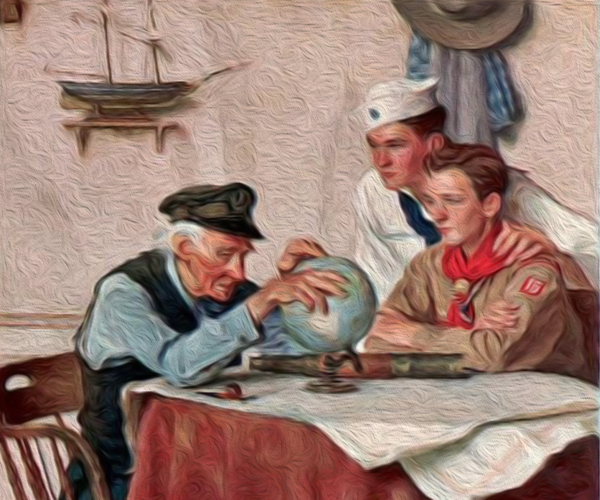
Understanding Military Terminology - forward observer
(DOD) Forward observer:
An observer operating with front line troops and trained to adjust ground or naval gunfire and pass back battlefield information. In the absence of a forward air controller, the observer may control close air support strikes. Also called FO. See also forward air controller; spotter. Wikipedia / Joint Point 3-09)
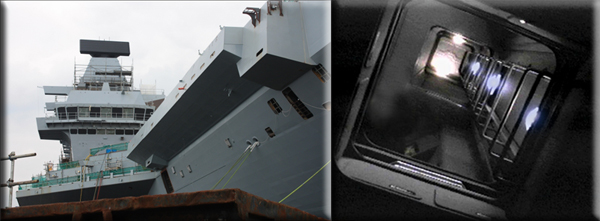
The Old Salt’s Corner
Ladderwells and Passageways
Generally rank has its privilege going up and down ladders, with juniors yielding to seniors. The same goes for narrow passageways. Make way for seniors. Remember you are in a three dimensional environment.
Be observant and look up and down before using a ladderwell to see who might be in the way. Be sure to offer proper military courtesy to seniors.
Tape pasted down the middle of a passageway or hatchway indicates the deck is being cleaned and waxed. Work is done on one half at a time to keep the passageway open. Stay to the side that is not being worked on.

“I’m Just Sayin’”
How do you know if honesty is the best policy unless you've tried some of the others?

“Thought for the Day”
“The best executive is one who has sense enough to pick good people to do what he wants done, and self-restraint enough to keep from meddling with them while they do it.”
~ Theodore Roosevelt

“What I Have Learned”
“Success is getting what you want. Happiness is liking what you get.”
~ H. Jackson Brown, Jr.

Bizarre News (we couldn’t make up stuff this good – real news story)
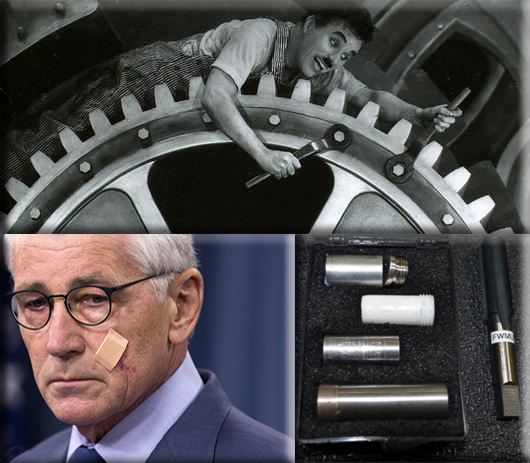
Comprehensive Pentagon studies of America’s nuclear missile infrastructure released in November (following disturbing reports of readiness failures) included the revelation that nuclear warheads had to be attached with a particular wrench, even though the Air Force only owned one with which to service 450 missiles housed at three bases.:
Consequently, one official told the New York Times, “They started FedExing the one tool” back and forth. No one had checked in years, he said, “to see if new tools were being made” - typical of maintenance problems that had “been around so long that no one reported them anymore”. Fox News (Denver) / New York Times

Mr. Answer Man Please Tell Us: How do bears survive the winter in hibernation without dehydrating?
Many different mammals hibernate. In some species, body temperature can drop down near the freezing point. Heart rate and breathing rates slow way down as well.
Bears do not hibernate nearly that deeply, but their body temperatures do fall and metabolism slows down quite a bit. In this state, bears can go up to 6 months without food and water, and without needing to use the restroom.
Bears do it by burning off about a pound of fat a day. A pound of fat contains 3,500 calories. The process of burning the fat also creates water. Bears then recycle the nitrogen in their urine to create protein. When they come out of hibernation, bears are much lighter and very hungry, but they have lost no muscle mass.
Research: TIME
• PBS - NOVA
• National Park Service
• Bear Study.org

Where Did That Saying Come From?

“Clean as a whistle:”
The word “whistle” is, not surprisingly, very old, and was formed in imitation of the sound of whistling itself. “Whistle” as a noun, of course, can refer both to the act or sound of whistling and a mechanical apparatus for generating a whistling sound.
“Clean as a whistle” first appeared in print in the early 18th century, meaning “completely, absolutely, leaving no trace” (“A first rate shot; head taken off as clean as a whistle”, 1849). The sense of “pure, unsullied, spotless” that your friend used came a bit later, as did such variations as “sharp as a whistle” and “slick as a whistle”.
It’s probable, however, that the original phrase was actually “clear as a whistle”, referring to the ability of a whistle to be heard in a noisy environment, and that the initial meaning was “definitely” or “unambiguously” (“I heard you clear as a whistle, Boss”). The mutation to “clean as a whistle” (using “clean” in the sense of “sharp and definite” found in “clean cut”) with the meaning “completely, absolutely” was a short jump from that “definite” meaning. “Clean” was then reinterpreted in popular usage to mean “spotless”, and “clean as a whistle” came to be used to mean “perfectly clean”.
An interesting parallel to “clean as a whistle” may be found in the phrase “clean as a hound’s tooth”, which has been used to mean “spotless” since about 1900. Hounds are not known for their oral hygiene, of course, so it’s likely that this “clean” originally meant “sharp”, just as in “clean as a whistle”. Phrases.org UK
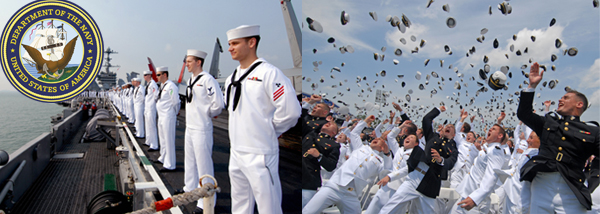
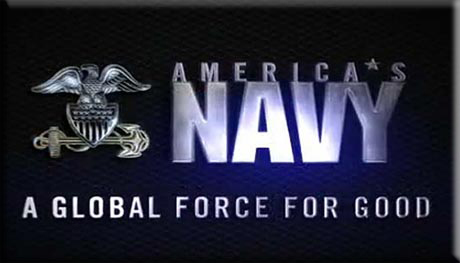
NAVSPEAK aka U.S. Navy Slang
Chart: What landlubbers call a “map”.
Dining-in/Dining-out: Social functions, usually for officers and chiefs, where dinner dress is worn and certain “rules of the mess” are followed. Generally presided over by the Executive Officer (XO) and run by a Chief or Junior Officer (JO) called “Mr. Vice”, these events can become quite rowdy and raucous. The difference between the two is that significant others may attend dining-outs. Dining- ins are for the service members only.
ESWS: Enlisted Surface Warfare Specialist. Often pronounced “E-swas”.
P-Days: First 7 to 10 days of boot camp, the “P” stands for Processing.
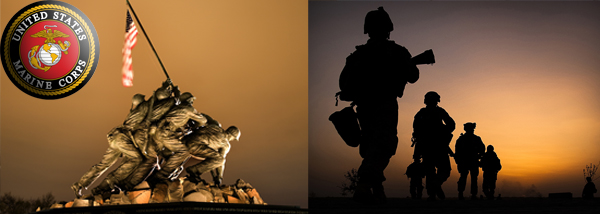
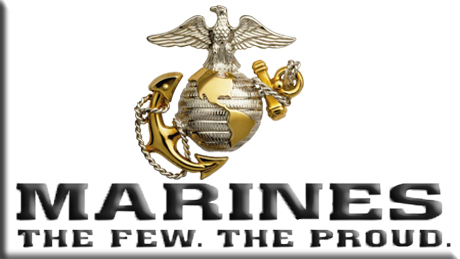
Just for you MARINE
Corp: An abbreviation for the word corporation which is frequently used incorrectly in place of the word Corps.
Corporal of Marines: The first of the noncommissioned officer ranks is indicated by two chevrons and crossed rifles below them worn on both sleeves. The pay grade is E-4 and is equivalent to corporal in the Army, senior airman in the Air Force and petty officer third class in the Navy and Coast Guard.
Corps: A military unit containing multiple Divisions or a unique, specified military organization given the designation.
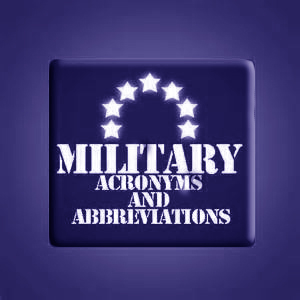
Navy Acronyms
PRD - Projected Rotation Date
Date on which a Navy Officer or Sailor’s next duty station is established based on their pay grade and community.
PRT - Physical Readiness Test
A required basic physical test conducted to determine the physical fitness of Navy personnel.
RDC - Recruit Drill/Division Commander
Sailor responsible for training recruits at the Navy Recruit Training Command (RTC).
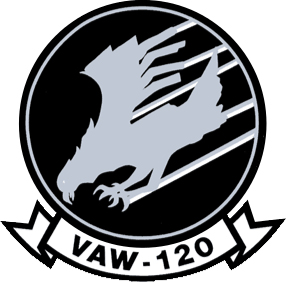
Naval Aviation Squadron Nicknames
VAW-120 - Carrier Airborne Early Warning Squadron 120: “Grey Hawks”
NAS Norfolk, Virginia

The Strange, Mysterious or Downright Weird
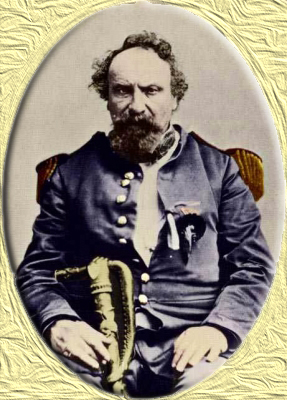
In the history of San Francisco no character has ever stood out more than Joshua Norton. He was born in England and spent most of his life in South Africa. In 1849 he received a large inheritance and sailed for San Francisco with a dream of supplying Peruvian rice to the California Territory. In the years that followed, Norton’s rice venture failed and an unsuccessful lawsuit drove Joshua out of San Francisco and out of his mind. He returned a year later and he had clearly gone insane from the strain of the loss of his business and his holdings.
In 1859, Joshua Norton sent a declaration to several California newspapers which read: “At the peremptory request and desire of a large majority of the citizens of these United States, I, Joshua Norton, formerly of Algoa Bay, Cape of Good Hope, and now for the last 9 years and 10 months past of San Francisco, Cal., declare and proclaim myself Emperor of these United States…….”
Norton I, Emperor of the United States.
Emperor Norton later added to his title, “Protector of Mexico”, and declared that there would no longer be a need for a legislature. He then abolished Congress as well as the Democrat and Republican parties. He established a fictional Treasury and was in the habit of fining people for various “crimes.” The money was to be used for the construction of a bridge from San Francisco to Oakland. No one ever paid his fines, but in a strange twist the San Francisco-Oakland Bay Bridge was completed in 1936 and bears a plaque with his name.
It was widely known in San Francisco the Joshua Norton was mentally ill and penniless. However, Emperor Norton I was well received at restaurants and events around town. Restaurant owners would place brass plaques above the door of their establishment welcoming Emperor Norton. Dressed in a uniform given to him by Army officers from the Presidio and sporting his brass tipped cane, Joshua Norton’s eccentric behavior lasted for twenty-one years with his decrees continuing until he fell dead on California Street in downtown San Francisco on January 8, 1880.
He was buried two days later and an estimated 10,000 people attended his funeral.
Wikipedia

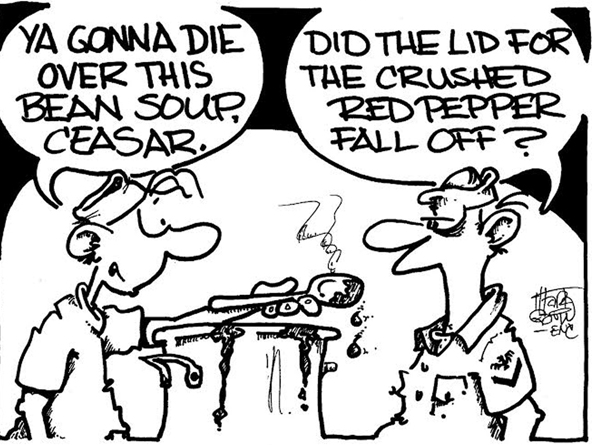
SONG FACTS
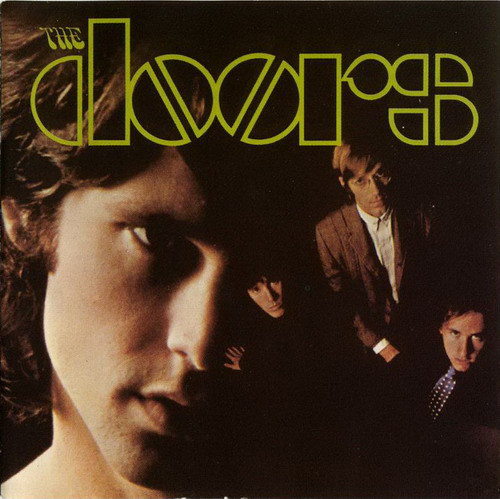
“Light My Fire by The Doors” - The Doors
Album: The Doors
Released 1967 
This became The Doors' signature song. Released on their first album, it was a huge hit and launched them to stardom. Before this was released, The Doors were an underground band popular in the Los Angeles area, but this got the attention of a mass audience.
The Doors' record company thought this was too long to get radio play, so the guitar solos were edited down for the single to make it considerably shorter. Many stations played the 6:50 album version anyway. Since the single was a shortened version, fans had to buy the album to get the extended mix, which helped spur sales of the album.
Elektra founder Jac Holzman recalled to Mojo magazine November 2010: "We had that huge problem with the time length - seven-and-a-half minutes. Nobody could figure out how to cut it. Finally I said to Rothchild, Nobody can cut it but you. When he cut out the solo, there were screams. Except from Jim. Jim said, “Imagine a kid in Minneapolis hearing even the cut version over the radio, it's going to turn his head around.” So they said, “Go ahead, release it.” We released it with the full version on the other side.
Most of the lyrics were written by Doors guitarist Robby Krieger. He wanted to write about one of the elements: fire, air, earth, and water. Jim Morrison wrote some of the second verse, and Ray Manzarek came up with the organ intro.
The extended organ and guitar solos in the album version of the song are based on John Coltrane's Jazz cover of the song “My Favorite Things”  from the motion picture The Sound of Music.
from the motion picture The Sound of Music.
Jim Morrison indicated in his notebooks that he disliked this song and hated performing it. He also seemed to resent that the popularity of the band derived from this song, which he had just a small part writing.
This was produced by Paul Rothchild and was recorded in late 1966 and then released in April 1967.
The song topped the chart for the first three weeks in July 1967. It sold over one million copies and was the first #1 hit for their record label Elektra.
The producers of The Ed Sullivan Show asked the band to change the line “Girl we couldn't get much higher” for their appearance in 1967. Morrison said he would, but sung it anyway. Afterwards, he told Sullivan that he was nervous and simply forgot to change the line. This didn't fly, and The Doors were never invited back.
A blind, Puerto Rican singer named Jose Feliciano recorded a Latin-tinged version of this song  that reached #3 in 1968 and won a Grammy for Best Contemporary Pop Vocal Performance, Male. For Feliciano, who also won the Best New Artist Grammy that year, the song was his breakout hit and introduced his style of acoustic, woodwind-heavy arrangements. Based on his “Light My Fire” performance, Feliciano was asked to sing The Star Spangled Banner
that reached #3 in 1968 and won a Grammy for Best Contemporary Pop Vocal Performance, Male. For Feliciano, who also won the Best New Artist Grammy that year, the song was his breakout hit and introduced his style of acoustic, woodwind-heavy arrangements. Based on his “Light My Fire” performance, Feliciano was asked to sing The Star Spangled Banner  before Game 5 of World Series between the Tigers and Cardinals. He delivered the first non-traditional take on the National Anthem at a major sporting event, doing a slow, acoustic version and causing an uproar. Feliciano capitalized on the controversy by releasing his Anthem performance as a single, and it reached #50 in the U.S.
before Game 5 of World Series between the Tigers and Cardinals. He delivered the first non-traditional take on the National Anthem at a major sporting event, doing a slow, acoustic version and causing an uproar. Feliciano capitalized on the controversy by releasing his Anthem performance as a single, and it reached #50 in the U.S.
This was the last song Jim Morrison performed live. It was a show at The Warehouse in New Orleans. 
According to Ray Manzarek on BBC Radio 2's program Ray Manzarek's Summer of Love, the baseline to “Light My Fire” was inspired by Fats Domino's “Blueberry Hill”. 
Manzarek told About.com how the keyboard solo came about: “It was exactly what we were doing at the time at Whisky a Go Go - letting the music take us wherever it might lead in a particular performance, just improvising. And that’s exactly the same way that solo came about.”
Rolling Stone magazine (500 Greatest Albums of All Time) / The Doors.com / Mojo / Rock & Roll Hall of Fame / Wikipedia / All Music
Image: “Light My Fire by The Doors” by The Doors

Trivia
● The 1960's phrase “flower power” was coined by Beat Generation poet Allen Ginsberg.
● Top of Form - British sailors were given lime or lemon juice to prevent scurvy; Dutch sailors were given sauerkraut.
● The Battle of New Orleans, which made Andrew Jackson a national hero, was fought two weeks after the War of 1812 had ended and more than a month before the news of the war's end had reached Louisiana.

A Test for People Who Know Everything
What is tapioca?
● Answer for People Who Do Not Know Everything, or Want to Verify Their AnswerTIME
Answer to Last Week's Test
Who was the first Major League Baseball player to earn one million dollars in a single season?
Answer: Nolan Ryan earned $1,000,000 in 1979 playing for Houston.

Joke of the Day
The guys were all at a deer camp. No one wanted to room with Bob, because he snored so badly. They decided it wasn't fair to make one of them stay with him the whole time, so they voted to take turns. The first guy slept with Bob and comes to breakfast the next morning with his hair a mess and his eyes all bloodshot. They said, “Man, what happened to you?”
He said, “Bob snored so loudly, I just sat up and watched him all night.”
The next night it was a different guy's turn. In the morning, same thing - hair all standing up, eyes all bloodshot. They said, “Man, what happened to you? You look awful!”
He said, “Man, that Bob shakes the roof with his snoring. I watched him all night.”
The third night was Pete's turn. Pete was a big burly ex-Navy man; a man's man. The next morning he came to breakfast bright eyed and bushy tailed. “Good morning”, he said.
They couldn't believe it! They said, “Man, what happened?”
He said, “Well, we got ready for bed. I went and tucked Bob into bed, patted him on the butt, and kissed him good night. Bob sat up and watched me all night.”


























